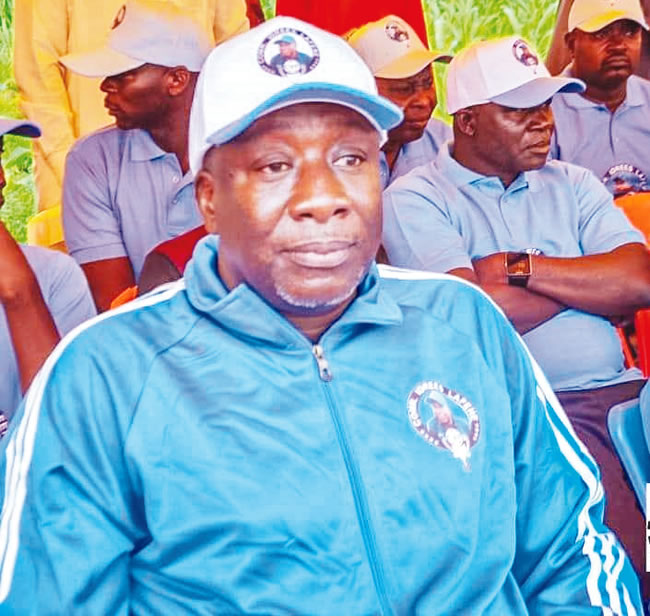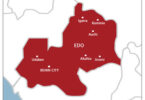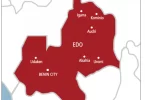Comrade Abdulkareem Lafene doubles as the state chairman of Nigeria Labour Congress (NLC) and Nigerian Union of Local Governments Employees (NULGE), Niger State councils. He speaks with ADELOWO OLADIPO on what the labour is doing to ensure improved conditions of their members in the state.
What is the situation with the payment of minimum wage in the state given the fact that some states in the country have agreed to pay the N70,000 minimum wage?
Well, as far as we are concerned, the process of negotiation in Niger State has not started because we are still waiting for the template from the Wages and Salaries Commission and then a directive from the national headquarters of the Nigeria Labour Congress in Abuja. If you observed in some states like Nassarawa that the governor promised to implement the minimum wage, the NLC said no, or what are you implementing when you don’t have the template? The template for the consequential adjustment is the most important thing. We all know that the minimum wage isN70,000, then the consequential adjustment for Level 7 and above, is the main issue. The adjustment, definitely, will be more than what the officials will offer now. That is what we are negotiating, because the state Head of Service called for the adjustments committee meeting and then the issue was mentioned. But we said, no we cannot discuss it without having any template and that he should let us wait for the template.
So when will the organised labour in Niger State recommence negotiation with the state government?
Well, the Wages and Salaries Commission is working on the template and I know as soon they finished, they will bring it out and then the National body of the NLC will send circular to each state, but the effective date of the law is May, because the law was passed with effect from May this year. So, if it is effective from May, then we should expect arrears.
What is your take on the Supreme Court verdict that granted autonomy to local government councils, bearing in mind the fact that some of these local government councils are engaged in joint projects with their state governments?
Well, these are legal issues. The 1999 Constitution as amended said that the local governments and the state governments have a Memorandum of Understanding [and that their funds be paid into states’ joint accounts], but now that the local governments have been granted autonomy, what it means is that when they receive their money, given that you have some loans to repay, if you are given money, then you will pay that loan. So, if there are commitments, you will honour such commitments. Your autonomy should not affect an MoU. But the problem is about those local governments that cannot pay their workers’ salaries and which have entered into agreements with their state governments when they were operating joint accounts. Now that they will be given their money directly, how would they settle their liabilities, pay their workers and also do some projects for their people? So, that is a big challenge. But it is the problem of the local government chairman and I am not the chairman of the local government council. If I were the council chairman, then I would have to look inwards, because there are some local governments that if there is autonomy, they cannot pay their workers’ salaries. That should not be so when you have markets that can generate revenues for your local government. Why can’t you harness the internally generated revenues (IGR) to settle your problems?
You said there are local governments that cannot pay their workers. Can you mention some of those LGs?
Well, a local government council like Chanchaga cannot generate up to N50 million – N100million in a month as revenue. I think something is definitely wrong somewhere because once you are faced with a challenge, then you have to block all loopholes. If you have corrupt tendencies, block those corrupt tendencies because like Chanchaga Local Government council it has many markets that can raise more than N100million in a month. So, they should harness this potential. Let them come to the state council of NLC and let us have an MoU, then we will help them because we cannot allow a situation where our staff will not be paid salaries at the end of the month. I think if you look at it , the Niger State government once contacted labour asking us how they can generate revenue for the state government. And I was part of that committee even though I was not yet the state chairman of NLC then. Then we brought out a report. I have also had the opportunity to work with the Shiroro local government council. At that time, the Shiroro local government council could not generate more than N2 million per week, but we said no, a single market in Shiroro local government Council can generate more than N10 million in a month and we demonstrated it because in labour we have all sorts of professionals, people who would have been consultants if they were in the private sector. And for you to have revenue statistics, once you conduct your revenue survey, you will be able to identify revenue sources and once you are able to identify your revenue sources, you will also identify how you can get your money from the revenue sources because gone are the days when you do it manually from one point to the other. Instead of doing it manually, you should create revenue platforms that every revenue source should pay to the banks. You will block leakages. It was one of the things that worked for Ondo State. A consultant took us there when I was doing my practical in school. So, the consultant took us to a place where we conducted a revenue survey. On the day he picked, he created a dashboard and he gave every revenue source a number and then he gave their names against the accounts in the dashboard. Everyone was expected to pay at the end of every month. Then when it was the 13th of the month it would alert you and it would be showing yellow light. And when it was the 16th of the month, it would show a red light. Then it would alert a mobile court and the mobile court would send you a court notice if you had not paid within that period. And each day that you delayed, you would be fined so, so, and so amount of money. And when it extends to another seven days within that period, the mobile court would send an authority to seize your business premises until you pay. So, what the revenue collectors do is to just monitor these points and then identify the sources though they don’t collect the money and they would ask who is number 112. If the authorities wanted to send you letters, those revenue collectors would notify you that they were coming to one place and then they would take it there to serve the person. Apart from Ogun State in the South-West, Ondo State is the next state with the collection of IGR. And if Niger State can do it too, especially in the local governments, that will be good because we have some potential in the local governments that if we harnessed it very well, I am sure things will work out very well for the government and the local government councils .
What are your aspirations for the NLC and NULGE as chairman for both unions?
Well talking about my aspiration, it is about whatever is meant for my members it should be done for my members. Basically it is about the welfare of the members and if you cannot fight for their welfare, you will know that you have not attained your desired aspirations. As members of the NLC, the welfare of our workers is our priority and without that we will say that aluta continua. In labour, we are trained to accept one figure after which we will go and look for more because we are just like Oliver Twist. That is the basic thing.
Since you became the state NLC chairman and president of NULGE, what has been your most embarrassing moment?
My most embarrassing moment is when you have an agreement with the government and then they are unable to fulfil that agreement. For example, this issue of leave bonus was done last week and I know that the agreement we had with the state government was almost a month ago. Then we went and informed our people that it would be paid at a certain period, but it was not implemented at the time. So we felt embarrassed whenever we had such a situation of the government not fulfilling the agreement they reached with us. But as comrades, we don’t feel dejected but rather we have to be patient and think of how to overcome the current stage, because in every negotiation we think that it is never too late, even if we were down. The second issue is when we had issues with the government, the security agencies like the police and personnel of the DSS [State Security Service, SSS] were looking for us. They were always inviting us by saying that we should come to the DSS office or come to the police to come and explain ourselves. We feel embarrassed, especially when the police operatives or the operatives of the DSS come to our house to effect such arrest. Then our family members will be looking at us, especially the little children, they will say the police are taking our daddy away, because they don’t understand that such invitations are part of daddy’s work.
READ ALSO: Five times Tinubu’s govt has promised to kickstart Port Harcourt refinery







